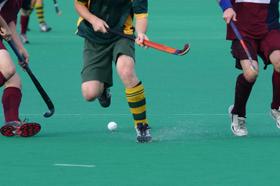The Natchez Trace Youth Academy is a highly structured residential juvenile training school located in Middle Tennessee.
The program serves adjudicated males, 12-18 years old. The program at NTYA is a cognitive behavioral program.
Residents work on their thinking patterns in order to change their negative behavior.
Each resident receives an Individual Program Plan tailored to meet his particular needs to direct this process of thinking and behavior change.
The Mission of Natchez Trace Youth Academy is to provide the highest quality services to the youth placed in our care in order to allow them the greatest chance of success and to provide those same youth with a positive and enriching environment in which they can learn from their past mistakes.
We demonstrate integrity, care, compassion, fairness and consistency in all we do and provide a highly structured program.
Accountability and Responsibility are the Cornerstones of our treatment Process.
School Overview
Religious Affiliation
Grades Offered
Grades 5-12
Student Body
Total Students
86 students
Student Body Type
% Students of Color
54%
State avg.: 20%
Students by Grade

Academics and Faculty
Total Classroom Teachers
10 teachers
Student-Teacher Ratio
9:1
National avg.: 13:1
Tuition and Acceptance Rate
Admission Deadline
None / Rolling
Source: National Center for Education Statistics (NCES)
Frequently Asked Questions
When is the application deadline for Natchez Trace Youth Academy?
The application deadline for Natchez Trace Youth Academy is rolling (applications are reviewed as they are received year-round).
Recent Articles

How Global Economic Trends Shape Private School Affordability
Explore how global economic trends influence private school affordability and enrollment in 2026, with insights for families and educators.

Parent Engagement in Private Schools in 2026
Explore how parent engagement in private schools builds strong communities, support networks, and student success in 2026.

So Many Choices: Navigating Private School Selection in 2026
A 2026 parent guide to choosing the right private school, with updated admissions timelines, tuition trends, affordability strategies, and expert insights.





